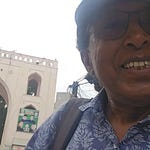This week I am revisiting two topics that I have covered over the last few years. the first is education see here, here, here, and here, there, there and there. The second is about bitcoin which I will introduce here, but that deserves another post, so please stay tuned for next week.
Will education reduce level of violence and poverty in Somalia?
Apparently yes, according to the Somali Minister of education. Political assertions, just like any philosophical discourse, one can find resources, in general terms, to support one’s argument. But in this case, we are dealing with real life situation. A Minister of education informing law makers in a parliament, must be careful and present credible ideas that all can understand and supported with reliable evidence. I agree with the Minister and I understand and appreciate his noble intention.
H.E. Farah Sheikh Abdulqadir, Minister of Education, Culture and Higher Education.
Federal Government of Somalia
The relationship between education levels, poverty, and violence in Somalia is complex, reflecting a nation grappling with significant social, economic, and political challenges. Somalia's protracted civil war, lack of stable governance, and chronic poverty have hindered its educational development for decades. Without foundational educational opportunities, young people are more susceptible to radicalization and involvement in conflict as alternatives to poverty.
Poverty in Somalia is both a cause and a consequence of low educational attainment. Families living in extreme poverty struggle to afford school fees, transportation, and basic necessities, forcing many children to abandon their education to support their families. Poverty serves as a barrier to education while the lack of education reinforces poverty, creating a vicious cycle.
Is there a link?
The link between education and violence in Somalia is equally concerning, as limited access to education has made young people vulnerable to recruitment by extremist groups and armed militias. Education serves as a protective factor, equipping individuals with skills, critical thinking abilities, and pathways toward meaningful employment. When such opportunities are absent, young individuals are more likely to turn to violence as a survival strategy or to gain a sense of purpose. Somalia’s large youth population is particularly vulnerable, as their limited educational options, compounded by poverty, make them targets for groups that promise stability, income, or social inclusion through violent means.
Addressing these disparities through accessible and equitable education can play a vital role in reducing violence and breaking cycles of poverty for all. To address the intertwined issues of poverty, violence, and educational deprivation, targeted efforts to improve educational access in Somalia are essential. By prioritizing education, Somalia has the potential to alleviate poverty and reduce violence, promoting peace and development within the country.
Any evidence?
Education plays a pivotal role in mitigating violence and poverty, particularly in conflict-affected regions like Somalia. Research has consistently shown a direct correlation between educational attainment and reductions in both poverty and violence, highlighting the transformative power of knowledge and skill acquisition in fostering societal stability (UNESCO, 2019). The was probably referring to the data from the World Bank (2022) which suggested that each additional year of schooling in low-income countries like Somalia can increase individual earnings by 10%, which can reduce poverty levels. With Somalia’s poverty rate currently around 69% (World Bank, 2021), an investment in education could significantly impact socioeconomic conditions.
Education also empowers individuals with better decision-making skills, helping them to navigate economic challenges and avoid engagement in violent activities, as educated citizens are more likely to seek peaceful solutions and stable income opportunities (Institute for Economics and Peace, 2020). Moreover, studies emphasize the importance of education in reducing recruitment into militant groups. According to the United Nations Development Programme (UNDP, 2017), 57% of voluntary recruits for militant groups in sub-Saharan countries.
But the Minister did not present his case with the necessary details, no references1 were given. And certainly without definition of ‘education’, it is hard to know what kind of education was the minister referring to. Therefore, even with some references on this I have shared, I feel those findings are not applicable at Somalia’s current education system.
Cryptocurrencies, particularly Bitcoin, are often met with skepticism and curiosity—why should we care? The reality is that cryptocurrencies represent the future of money, and many are deeply invested in this shift, as it moves us towards a cashless society where governmental control over currency may diminish. This is a matter of significant importance, especially for Somalis, who are increasingly compelled to rely on digital currencies, locally referred to as Mobile Money (MM). Over the past four years, I have researched extensively on this topic, focusing on MM's role in promoting financial inclusion. I have discussed these insights in various forums and will cover them further in my upcoming post. Stay tuned for more.
In the meantime, I will encourage you to watch the video clip below to get a feel for the bitcoin world.
The old barter system of past centuries was inadequate for meeting the demands of a modern market economy, as illustrated in the accompanying graph. Similarly, the digital economy will require a new form of value—possibly a redefined concept of "money"—to facilitate the exchange of goods and services. However, this new form must differ from the mobile money (MM) model used in Somalia, which suffers from insufficient regulation and oversight.
Understanding the significance of historical developments is crucial. Accordingly, an attempt has been made to summarize this history in a single graph (see above), complemented by an archival video clip presented below. This combination aims to encapsulate the evolution of money and the decline of traditional banking institutions. It is hoped that this presentation provides valuable insights.
Comments, feedback as always welcome.
References
UNESCO. (2020). Global Education Monitoring Report 2020: Inclusion and education – All means all.
United Nations Development Programme (UNDP). (2019). The role of education in preventing extremism and violence in fragile states.
World Bank. (2021). Somalia Education Sector Analysis: Rebuilding resilience through education.
African Development Bank (AfDB). (2022). Education and employment in fragile states: A focus on Somalia.















Share this post